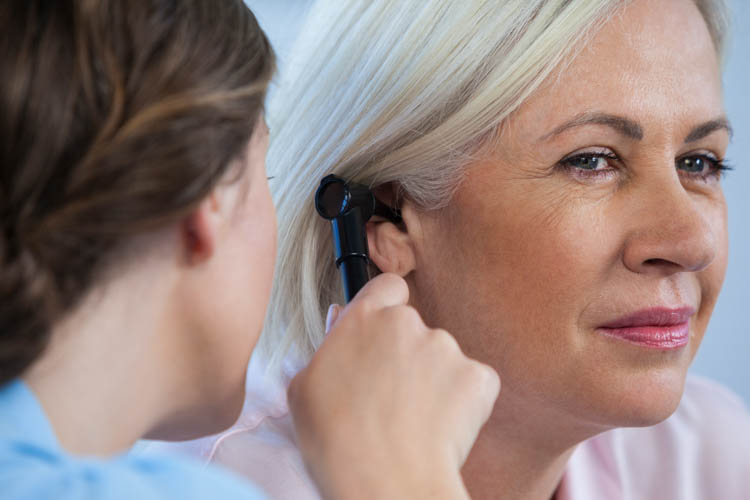Enhancing your life quality with regular adult hearing tests is essential. They help you detect gradual hearing loss early, allowing for effective management and better treatment outcomes. Modern hearing solutions, such as digital aids and Bluetooth connectivity, improve communication by filtering out background noise and enhancing sound clarity. They boost your emotional well-being by reducing stress and improving confidence in social settings. Additionally, staying engaged socially helps prevent cognitive decline and depression. Test your hearing regularly to maintain independence and strengthen relationships. Stay tuned to discover more about how these tests can transform your life.
Importance of Regular Hearing Tests
Even if you don’t notice any issues, regular hearing tests are crucial for maintaining your overall health and well-being. Hearing loss often occurs gradually, making it easy to overlook until it significantly impacts your daily life. By scheduling routine hearing exams, you can keep track of any changes in your hearing ability and address potential problems before they escalate.
Hearing health isn’t just about your ears; it’s closely linked to other aspects of your physical and mental health. For example, untreated hearing loss can lead to social isolation, depression, and cognitive decline. Regular hearing tests help ensure you’re not missing out on important social interactions and can keep your brain engaged and active.
Moreover, hearing tests can reveal underlying health issues you might not be aware of. Conditions like hypertension and diabetes have been linked to hearing loss, so monitoring your hearing can serve as an early warning system for other health concerns.
It’s essential to integrate hearing tests into your routine healthcare regimen, just like dental check-ups or eye exams. By doing so, you’re taking a proactive approach to preserving not only your hearing but also your overall quality of life.
Early Detection Benefits
Detecting hearing issues early can significantly improve treatment outcomes and overall quality of life. When you catch hearing problems at their onset, you have a better chance of managing them effectively. Early detection allows you to take advantage of a wider range of interventions and therapies, which can slow down or even prevent further hearing loss.
Moreover, early identification of hearing issues can help you stay connected with your loved ones and maintain social interactions. You won’t miss out on important conversations, which can reduce feelings of isolation and depression. Addressing hearing problems early also supports cognitive health. Research shows that untreated hearing loss can increase the risk of cognitive decline and dementia. By catching issues early, you can take steps to protect your brain health.
Another benefit is the potential to maintain your independence. When you hear well, you are more likely to feel confident navigating your environment, whether it’s crossing the street or participating in group activities. Early detection can also save you money in the long run. Treating hearing loss in its early stages is often less costly than dealing with advanced hearing issues.
In short, early detection is key to a healthier, more fulfilling life.
Modern Hearing Solutions
Thanks to advancements in technology, modern hearing solutions now provide more effective and discreet options for managing hearing loss. You’re no longer limited to bulky, noticeable devices; today’s hearing aids are sleek, powerful, and packed with features that can enhance your daily life. Let’s explore some of the latest innovations that can help you hear better and live better.
- Digital Hearing Aids: These devices process sound digitally, providing clearer audio and the ability to adjust settings based on your environment. They can automatically reduce background noise and improve speech clarity.
- Invisible-In-Canal (IIC) Devices: These tiny hearing aids fit deep inside your ear canal, making them virtually invisible. They’re perfect for those who prioritise discretion without sacrificing performance.
- Bluetooth Connectivity: Modern hearing aids often come with Bluetooth capabilities, allowing you to connect directly to your smartphone, TV, or other devices. This makes phone calls, music streaming, and watching TV much more enjoyable.
- Rechargeable Batteries: Say goodbye to constantly replacing batteries. Many contemporary hearing aids come with rechargeable options, making them more convenient and environmentally friendly.
Improving Communication
Effective communication with loved ones and colleagues is crucial, and modern hearing aids come with several features to help you stay connected and engaged. With advanced technology, these devices can filter out background noise, making it easier to focus on conversations, even in crowded or noisy environments. You won’t have to strain to hear, which lets you participate more actively in discussions and social activities.

Moreover, many hearing aids come with Bluetooth connectivity, allowing you to stream audio directly from your smartphone, TV, or other devices. This means you can enjoy clear phone calls, listen to music, or watch your favourite shows without missing a word. The seamless integration with your daily tech helps you stay in the loop and reduces the frustration of miscommunication.
Directional microphones are another great feature in modern hearing aids. They focus on the sound coming from the person you’re talking to, minimising distractions from other directions. This can be particularly beneficial in meetings, family gatherings, or any situation where clear communication is essential.
Boosting Emotional Well-being
Feeling connected in conversations not only enhances communication but also significantly boosts your emotional well-being. When you can hear clearly, you participate more actively, reducing feelings of isolation and frustration. Adult hearing tests are crucial in identifying any issues early, allowing you to take steps to maintain your emotional health.
Here are four ways improved hearing can boost your emotional well-being:
- Increased Confidence: When you hear well, you’re more likely to engage in conversations without fear of missing important details or misinterpreting words. This boosts your confidence in social settings.
- Reduced Stress: Straining to hear can be exhausting and stressful. By addressing hearing issues, you can enjoy interactions without the mental fatigue that often accompanies hearing difficulties.
- Enhanced Mood: Hearing clearly allows you to fully experience and enjoy the sounds of life, from a loved one’s laughter to your favourite music, positively impacting your overall mood.
- Better Relationships: Clear communication is key to nurturing relationships. When you hear well, misunderstandings are minimised, leading to stronger and more fulfilling connections with those around you.
Staying Socially Connected
Being socially connected is vital for maintaining a high quality of life, and addressing hearing issues can significantly enhance your ability to stay engaged with others. If you’re struggling to hear conversations, you might find yourself withdrawing from social activities, which can lead to feelings of isolation. This doesn’t have to be your reality. Regular hearing tests can identify problems early, allowing for timely interventions like hearing aids or other treatments.
When you can hear clearly, you’re more likely to participate in social gatherings, family events, and casual conversations. You won’t have to worry about missing important details or feeling left out. This helps to strengthen relationships and build new ones, keeping you emotionally and mentally fulfilled. Moreover, staying socially connected has been linked to lower risks of depression and cognitive decline.
Don’t underestimate the impact that good hearing can have on your social life. By ensuring your hearing is optimal, you’re taking an essential step towards maintaining active social connections. So, make it a priority to schedule regular hearing tests. It’s a small effort that yields significant benefits for your overall well-being.



